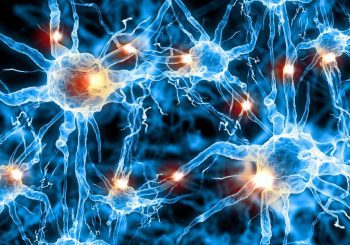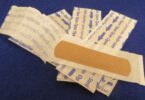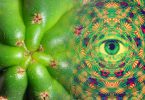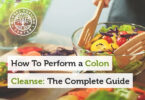Guest writer for Wake Up World
Every functional medicine psychiatrist has case stories of the “probiotic cure” – of a patient with debilitating symptoms, often obsessive compulsive range, whose symptoms remitted completely with dietary change and probiotic supplementation. Is this voodoo or is it based on a growing understanding of the role of the microbiome in mental health and behavior?
For two decades now, pioneering researchers have been substantiating inflammatory models of mental illnesses such as depression, bipolar disorder, and schizophrenia. Research has focused on markers that indicate immune distress in an important subset of patients, many of whom are labeled “treatment resistant.” Through this body of literature, we have identified that depression can be induced, in animals and in humans through inflammatory agents, that it is correlated with blood levels of inflammatory markers, in a linear way (more markers = worse depression), and that symptoms can be reversed through pharmaceutical anti-inflammatories.
[pro_ad_display_adzone id=”110028″]
Inflammatory Models of Mental Illness: The Role for the Gut
Working with this premise, where is the best place to begin when we consider how to modify inflammatory states in the body, naturally? You guessed it, it’s the gut. Housing >70% of our immune system, the gut is our interface between the outside and inside world, separated by one-cell-thickness. The resident microorganisms, outnumbering our human body cells by 10:1, develop an ecosystem through postnatal exposures, in the vaginal canal, through breastfeeding, and the immediate environment. Disruption to the balance of bacteria through medication exposures, gluten, herbicides, stress, and infection can set the stage for the innate immune system to prepare for attack. Depression, associated with compromised integrity of this intestinal barrier, becomes the swirling storm of inflammation, impairment of cellular machinery (i.e. mitochondria), oxidative stress, and inflammation in a carousel-like forward rotation. Specifically, depression is associated with elevated levels of lipopolysaccharide (LPS), a nutrient-binding, inflammatory toxin produced by bacteria that are intended to remain in the gut.
If depression is a downstream collection of symptoms, and inflammation, oxidative stress, and mitochondrial dysfunction are driving these symptoms, what is at the source? It appears, from data in animals and humans, that disruption to our gut ecology may be a major player, and the microbiome has stepped to the forefront of cutting-edge psychiatric research.
Enter psychobiotics: “a live organism that, when ingested in adequate amounts, produces a health benefit in patients suffering from psychiatric illness.” A review by Dinan et al. encompasses the clinical basis for the use of probiotics in mental health with reference to animal studies in which behavioral changes resulted from exposure to bacterial strains such as bifidobacterium and lactobacillus. In placebo-controlled trials in humans, measures of anxiety, chronic fatigue, and depression and anxiety associated with irritable bowel syndrome.
The therapeutic clinical applications of probiotics have been limited to a handful of strains out of the more than 7000 at last count. It appears that colonization is not an expected outcome of probiotic supplementation, and that genomic communication between bacteria and immune receptors may account for anti-inflammatory effects.
Ancient Wisdom
Given how little is known about therapeutic applications of different strains, it may make sense to defer to ancestral practices that confirm the importance of probiotic exposures. In these foods such as lactofermented kimchi, pickles, sauerkraut, and other traditional vegetables, microbes are acting on the food, and the food is then acting on our microbes.
What do bacteria accomplish in the gut? Do they just help with digestion? According to Selhub et al., they:
- Direct protection of the intestinal barrier;
- Influence on local and systemic antioxidant status, reduction in lipid peroxidation;
- Direct, microbial-produced neurochemical production, for example, gammaaminobutyric acid (GABA);
- Indirect influence on neurotransmitter or neuropeptide production;
- Prevention of stress-induced alterations to overall intestinal microbiota;
- Direct activation of neural pathways between gut and brain;
- Limitation of inflammatory cytokine production;
- Modulation of neurotrophic chemicals, including brain-derived neurotrophic factor;
- Limitation of carbohydrate malabsorption;
- Improvement of nutritional status, for example, omega-3 fatty acids, minerals, dietary phytochemicals;
- Limitation of small intestinal bacterial overgrowth;
- Reduction of amine or uremic toxin burden;
- Limitation of gastric or intestinal pathogens (for example, Helicobacter pylori);
- Analgesic properties.
Given widespread fermentation practices in traditional cultures, it appears that this dietary wisdom may serve to ameliorate gut-based inflammation and promote optimal nutrient assimilation as described in this review: “Traditional dietary practices have completely divergent effects of blood LPS levels; significant reductions (38%) have been noted after a one-month adherence to a prudent (traditional) diet, while the Western diet provokes LPS elevations .”
In addition to increasing bioavailability and production of minerals, neurochemicals, and fatty acids, fermented foods actually produce methylfolate, an activated form of folate required for methylation: brain chemical synthesis, detox, and gene expression.
Because of the complex coevolution of bacterial strains, cultivated through our food supply, and complementary to our inner microbiomes, we have an opportunity to use therapeutic foods to reeducate an immune system that has been drawn off course. Psychobiotics have the potential to modulate multiple different relevant factors at once:
“This could manifest, behaviorally, via magnified antioxidant and anti-inflammatory activity, reduction of intestinal permeability and the detrimental effects of LPS, improved glycemic control, positive influence on nutritional status (and therefore neurotransmission and neuropeptide production), direct production of GABA, and other bioactive chemicals, as well as a direct role in gut-to-brain communication via a beneficial shift in the intestinal microbiota itself.” [source]
It is therefore compelling to consider the power of reconnecting to the natural world through our food; communicating through our guts to our brains, that nutrients are plentiful, our bodies are safe, and that our inflammatory systems can be put at ease. It is under these circumstances that the infinite complexity of the endocrine, immune, and gastrointestinal systems can play out, unhindered in support of mental health and wellness.
Recommended articles by Kelly Brogan, M.D.
- Vitamin B12 Deficiency: A Trigger for Depression and Anxiety?
- Two Foods That May Sabotage Your Brain
- Psych Meds Put 49 Million Americans at Risk for Cancer
- Depression: It’s Not Your Serotonin
- Are You Fluoridated?
- The Violence-Inducing Effects of Psychiatric Medication
- Fear Is The Sickness
- 7 Facts About Depression That Will Blow You Away
- 5 Foods That Can Cause Depression
- This Is Your Body (and Brain) on Gluten
About the author:
Kelly Brogan, M.D. is a holistic women’s health psychiatrist, author of the NY Times Bestselling book, A Mind of Your Own, the children’s book A Time For Rain, and co-editor of the landmark textbook, Integrative Therapies for Depression. She completed her psychiatric training and fellowship at NYU Medical Center after graduating from Cornell University Medical College, and has a B.S. from M.I.T. in Systems Neuroscience. She is board certified in psychiatry, psychosomatic medicine, and integrative holistic medicine, and is specialized in a root-cause resolution approach to psychiatric syndromes and symptoms. She is on the board of GreenMedInfo, Price-Pottenger Nutrition Foundation, Functional Medicine University, Pathways to Family Wellness, Mindd Foundation, SXSW Wellness, Chickasaw Nation Wellness, and the peer-reviewed, indexed journal Alternative Therapies in Health and Medicine. She is Medical Director for Fearless Parent and a founding member of Health Freedom Action. She is a certified KRI Kundalini Yoga teacher and a mother of two. For more articles, sign up for her newsletter at kellybroganmd.com.
© March 6th, 2018 GreenMedInfo LLC. This work is reproduced and distributed with the permission of GreenMedInfo LLC. Want to learn more from GreenMedInfo? Sign up for their newsletter here.








